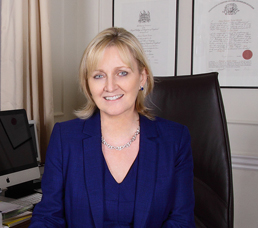Diagnosing arthritis is something most GPs and many specialist doctors do on a regular basis.
The type of arthritis you believe you have will be dependent on your symptoms and it will also play a role in the tests you are given before a full diagnosis is provided. Here is a close look at the standard diagnosis process for both osteoarthritis and rheumatoid arthritis.
Diagnosing Osteoarthritis
If you believe you may have osteoarthritis, then you need to visit your doctor. There are no definitive tests or methods for diagnosing osteoarthritis but your doctor will begin by asking about your symptoms. You need to be able to give the best possible description of your pain and also remember to mention any stiffness and joint flexibility issues.
Your doctor may take a closer look at your joints, examining for bony swellings or nodules or issues such as creaks, restricted flexibility and excess fluid. You may also see them look out for muscle thinning to try and get a complete diagnosis for you.
You may find that your GP is able to diagnose osteoarthritis if you tick the following boxes:
- You are aged 50 or over
- You have persistent, throbbing joint pain which gets worse when you use your joints
- You have stiffness in your joints which is particularly bad in the mornings but lasts less than 30 minutes usually
If your symptoms are not the same as the above, then your GP may want you to have further tests for a different form of arthritis. They may include x-rays which can confirm osteoarthritis and blood tests may be taken but only to exclude other possible diagnoses.
Diagnosing Rheumatoid Arthritis
Much like osteoarthritis there is no definitive test for rheumatoid arthritis and it is notoriously difficult to diagnose. Your GP will once again ask for your symptoms and check your joints for their flexibility. Your skin will be examined and your muscle strength will be tested. If they believe you may have rheumatoid arthritis you will be referred to a rheumatologist or your doctor may carry out the following kinds of tests:
Blood Tests
Blood tests including C-reative protein, a full blood count, rheumatoid factor and erythrocyte sedimentation rate are usually carried out. They can help to find if there is any inflammation and whether particular trends, usually seen in people with rheumatoid arthritis, are met.
Joint Imaging
You may have x-ray tests which focus in on each of your joints. They can help to differentiate between different types of arthritis and they can also indicate the stage of the arthritis and how far progressed it is. You may also have an MRI scan or regular MRI scans as they can show the damage to the joints more clearly.
Questions about Arthritis
If you have any questions about arthritis then please contact Dr Stephanie Barrett.



